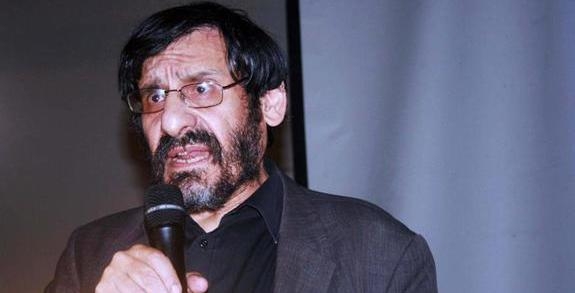Director Steven Friedman of the Centre for the Study of Democracy at the University of Johannesburg, disagrees with the allegation made by some, including in the recent documentary ‘Miners Shot Down’ by film maker Rehad Desai, that South Africa’s deputy president and former mine boss Cyril Ramaphosa is personally to blame for the massacre of mineworkers at Marikana two years ago. In emails to his business partners at the Lonmin mine, Ramaphosa stated that he had prevailed upon government to take ‘concomitant action’ against the ‘criminal’ strike. Twenty four hours after this correspondence, riot police shot and killed 34 mineworkers.
Is Cyril Ramaphosa not to blame for the killings at Marikana?
The text of the emails doesn’t show that Ramaphosa asked for anything more than the upholding of the law, although he obviously used influence which most company board members don't have. Blaming an individual in this case is also simplistic and that means that you are not getting to grips with the problem. What the emails do show is that the pattern of the (apartheid) past is still very much with us. White business elites appoint well-connected blacks to their boards so that they can talk to fellow blacks –in this case in the government- to get things done to their benefit. Cyril Ramaphosa is no exception. Like many others, he joined an exclusive club of white big business and then abided by the rules of this club, instead of doing something about the situation that the miners were protesting against.
That is surprising because Ramaphosa is a former trade unionist himself. He could have played a much more constructive role in the labour dispute.
Which is clearly not what the company on whose board he sat wanted. It is part of pattern in which black ‘empowerment’ appointees are used like chewing gum in a gaping hole: to talk to government and workers but not to propose changes. I agree that someone like Ramaphosa should know better, but it is not just him. There are hundreds like him. I can’t think of any black appointee in the business elite who has tried to change outdated employment practices. They just all want to join the club.
You have said that this behaviour even prevails in the leadership of the unions. A new union, AMCU, started to represent workers because the old union, NUM, had become ‘too middle class.’ But now even AMCU is seen to go the same route.
Yes, union leadership also often seems keener to join the club than to change its rules. Some of my academic colleagues are enthusiastic about developments on the labour front. They look at possible splits and moves away from the governing party, the ANC, as signs that an independent labour movement is on the rise and that that will change things. But we don't know yet whether the new unionism will differ from the old
Isn’t everybody motivated by a feeling that a bloody labour conflict like at Marikana should never happen again?
That is what is being said. Marikana has widely been called a ‘watershed’ moment. People felt that relations between business and labour should change after this. But I don’t observe much thinking or action that is directed towards change. The government, police, business and the unions all blame one another. The only thing the government has come up with so far is the idea that we need new, stricter, laws to govern strike action. In the column I am writing for Business Day at the moment (see note below, EG), I am asking whether this interest in new controls is because the unions which have led this year's major strikes are no longer loyal to the governing party. Controls on unions could be seen purely as an attempt to smash opposition.
What thinking or action for change would you envisage?
Not one of the parties has addressed the fundamental question that was posed in 1994 (at the time of the first democratic elections, EG): how do we deal with the massive social inequality in this country whilst sustaining the economy?
The response to that question is often that there isn’t enough money to give everybody what they want.
I doubt that it is always about giving people money. What I heard from people engaged in recent protests is that they want to be taken seriously; they want leaders to engage with them. We had that atmosphere in the early nineties. There was a lot of debate then, and willingness from all sides to look at ways to change things. It wasn’t just about more stuff.
Maybe the government or the ruling party are simply unable to show real leadership?
The issue is not leadership, it is willingness to negotiate change. It is true that we are not going to have another Mandela. But there are, in my view, still people in important positions who understand that we need to do things differently. And there are probably more such people in government than in business, which often simply blames the government for everything without looking at what it can change.
Are those few thinking people in government our only hope?
I am not a pessimist. There is a debate taking place in society, there is thinking about inequality and social protests. A ‘never again’ is being said about Marikana. But we need real initiatives. There was a plan to have the very same Cyril Ramaphosa chair the National Economic Development and Labour Council, Nedlac (the National Economic Development and Labour Council, EG). That could provide a way forward. But it hasn’t happened yet.
Note: See for Steven Friedman’s latest column http://www.bdlive.co.za/opinion/columnists/2014/08/20/little-evidence-that-marikana-changed-anything
This interview was conducted by Evelyn Groenink, ZAM Chronicle’s investigations editor.


